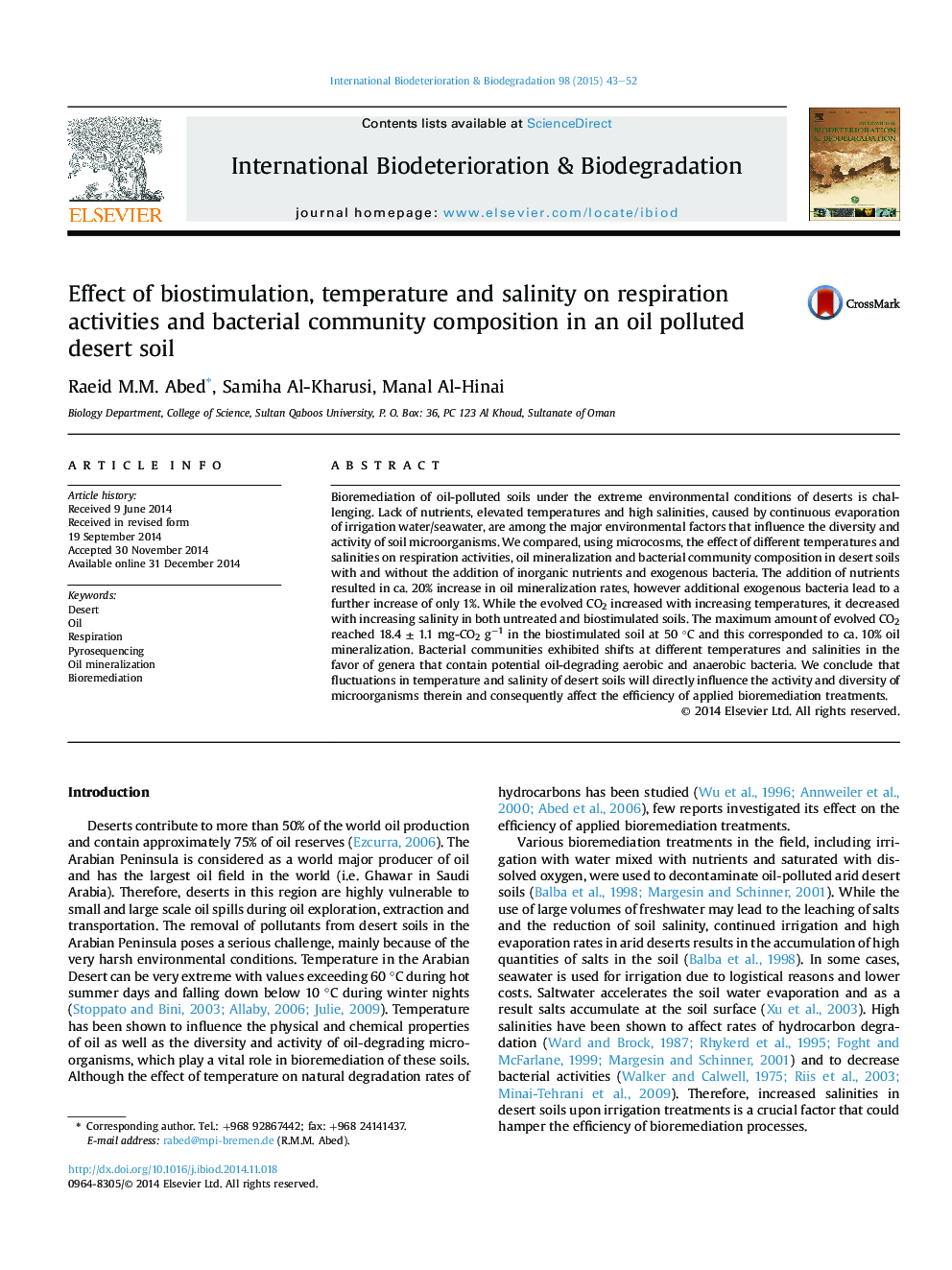| کد مقاله | کد نشریه | سال انتشار | مقاله انگلیسی | نسخه تمام متن |
|---|---|---|---|---|
| 4364581 | 1616319 | 2015 | 10 صفحه PDF | دانلود رایگان |
• Bioremediation of oil-polluted desert soils is rarely studied.
• Biostimulation is a more efficient process than bioaugmentation in the decontamination of desert soils.
• Temperature and salinity affect respiration activities and bacterial community composition of desert soils.
• Oil mineralization rates increase with increasing temperature but decrease with increasing salinity.
Bioremediation of oil-polluted soils under the extreme environmental conditions of deserts is challenging. Lack of nutrients, elevated temperatures and high salinities, caused by continuous evaporation of irrigation water/seawater, are among the major environmental factors that influence the diversity and activity of soil microorganisms. We compared, using microcosms, the effect of different temperatures and salinities on respiration activities, oil mineralization and bacterial community composition in desert soils with and without the addition of inorganic nutrients and exogenous bacteria. The addition of nutrients resulted in ca. 20% increase in oil mineralization rates, however additional exogenous bacteria lead to a further increase of only 1%. While the evolved CO2 increased with increasing temperatures, it decreased with increasing salinity in both untreated and biostimulated soils. The maximum amount of evolved CO2 reached 18.4 ± 1.1 mg-CO2 g−1 in the biostimulated soil at 50 °C and this corresponded to ca. 10% oil mineralization. Bacterial communities exhibited shifts at different temperatures and salinities in the favor of genera that contain potential oil-degrading aerobic and anaerobic bacteria. We conclude that fluctuations in temperature and salinity of desert soils will directly influence the activity and diversity of microorganisms therein and consequently affect the efficiency of applied bioremediation treatments.
Figure optionsDownload as PowerPoint slide
Journal: International Biodeterioration & Biodegradation - Volume 98, March 2015, Pages 43–52
